Community Banashi is a creative film series project, in which short films were directed and filmed by primary school students across Australia and Japan.
Through mentorship of film practitioners and educational experts, students in Australia and Japan engaged in creative storytelling of their locales through filming.
Participating schools span diverse locations in Australia and Japan, offering compelling stories of places through the eyes of children. Students translated each other’s films (English/Japanese), fostering deeper cross-cultural connection and collaboration via the currency of language.

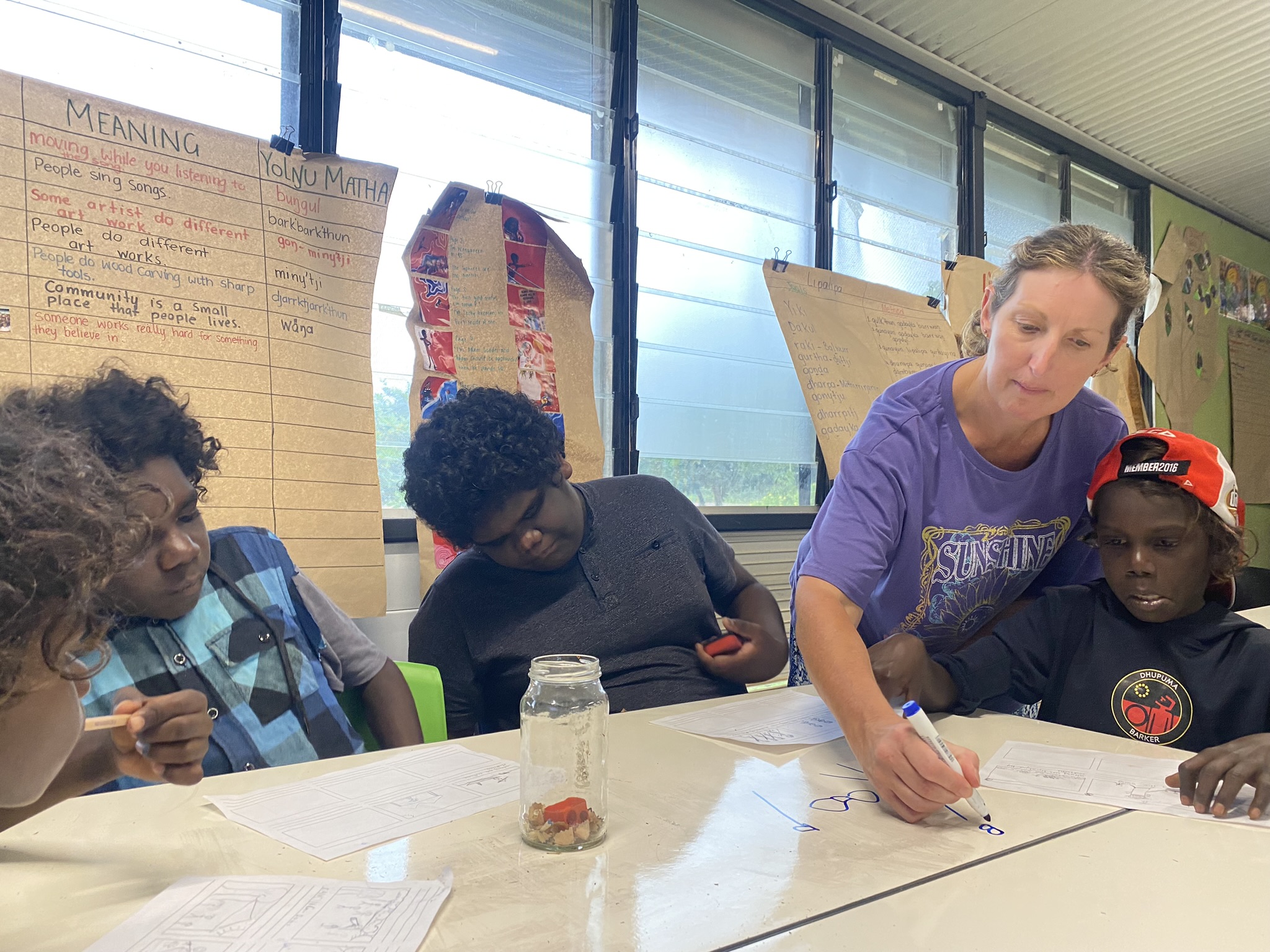
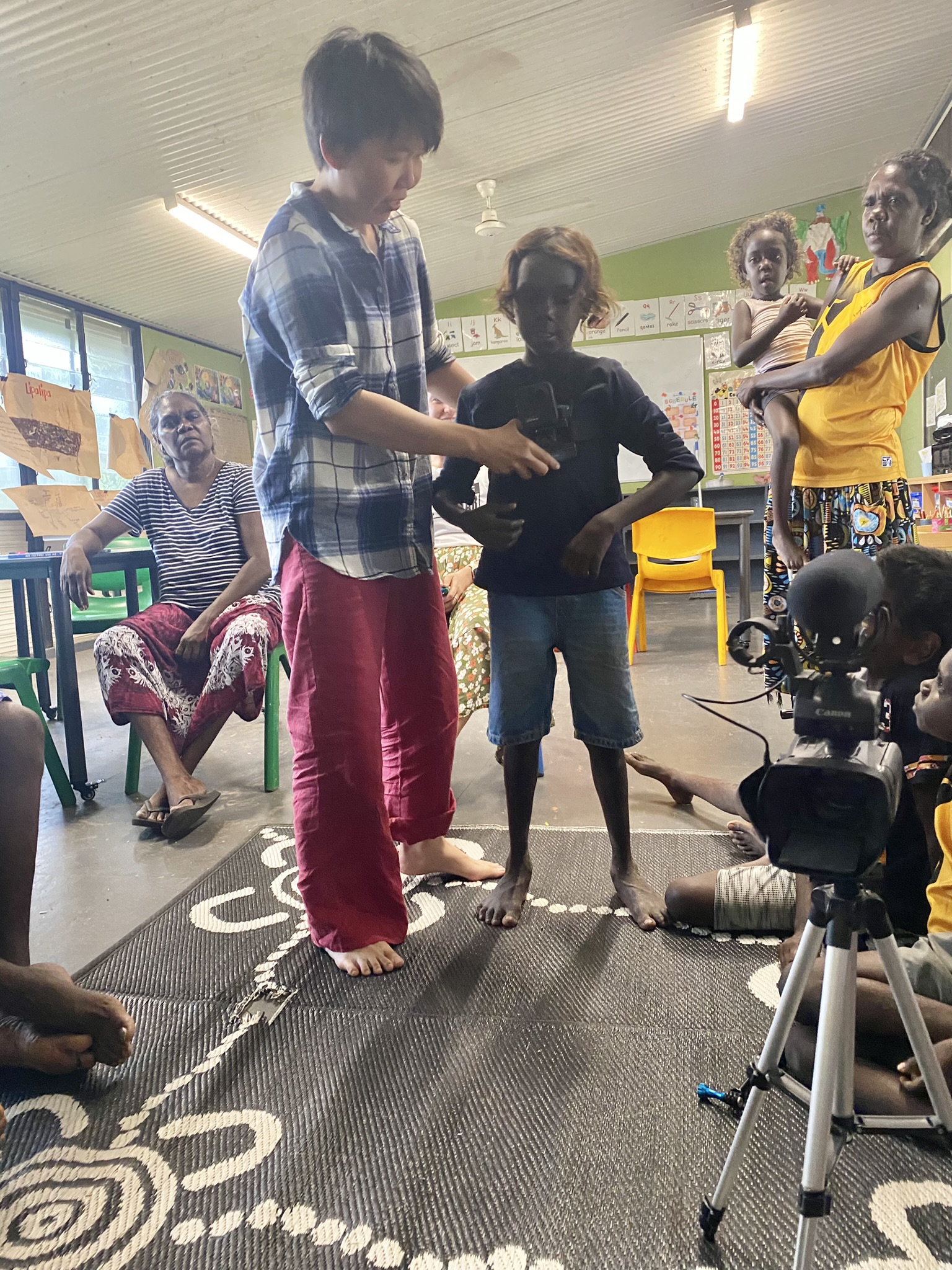
Gender Diversity & Inclusion
Community Banashi believes gender, diversity and inclusion are integral to this project as it enables rich cultural exchange across students of different gender and cultural background through the medium of storytelling.
Homelands School Garrthalala as well as Kagami Shogakko are co-educational schools in diverse locations in Australia and Japan ensuring gender, diversity and inclusion of students’ involvement.
Homelands School Garrthalala is located in a remote community in Northern Territory, Australia, comprising Indigenous students, whilst, Kagami Shogakko school comprises Japanese students in a rural setting in the outskirts of the town of Kochi in Japan.
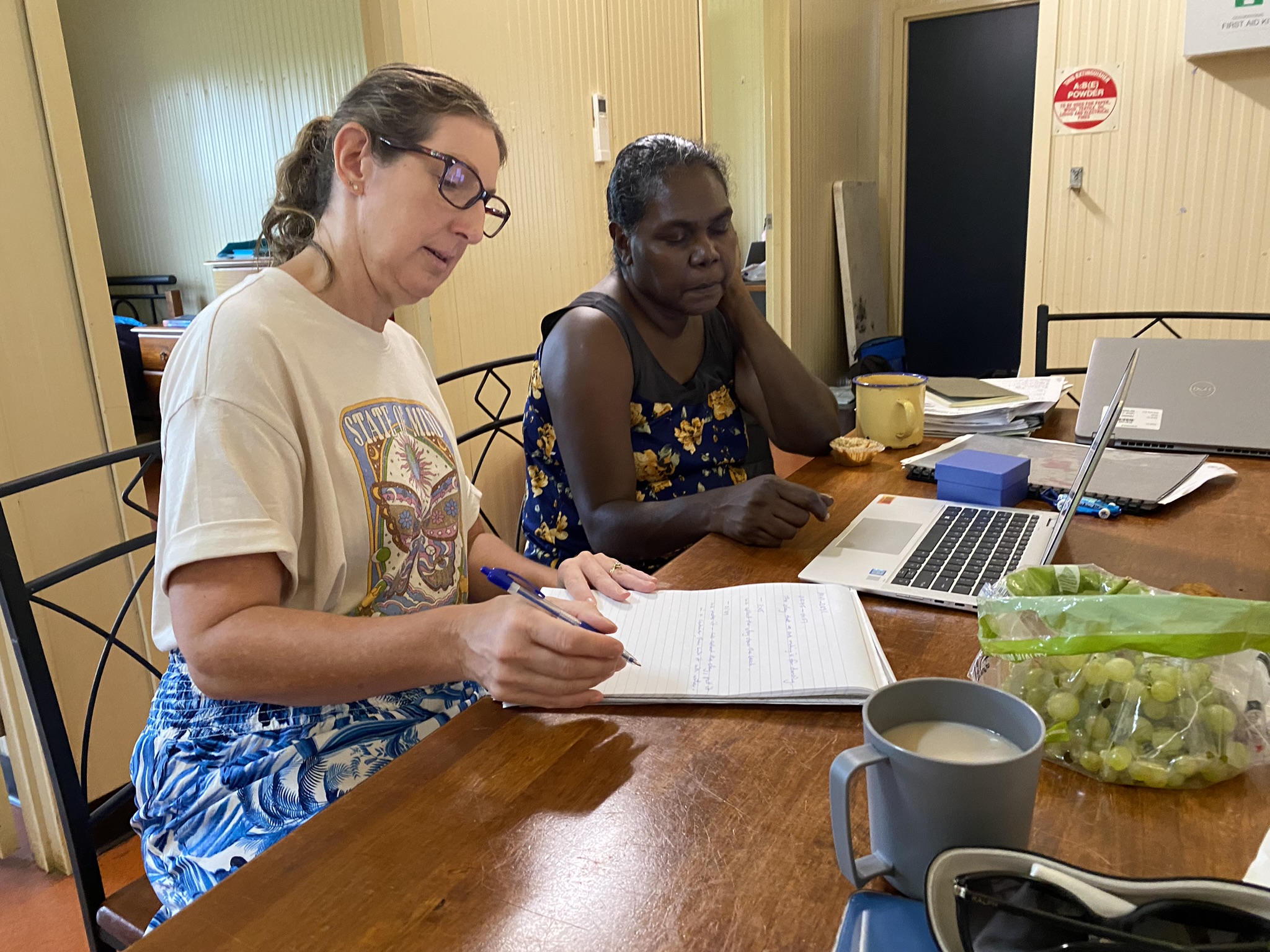
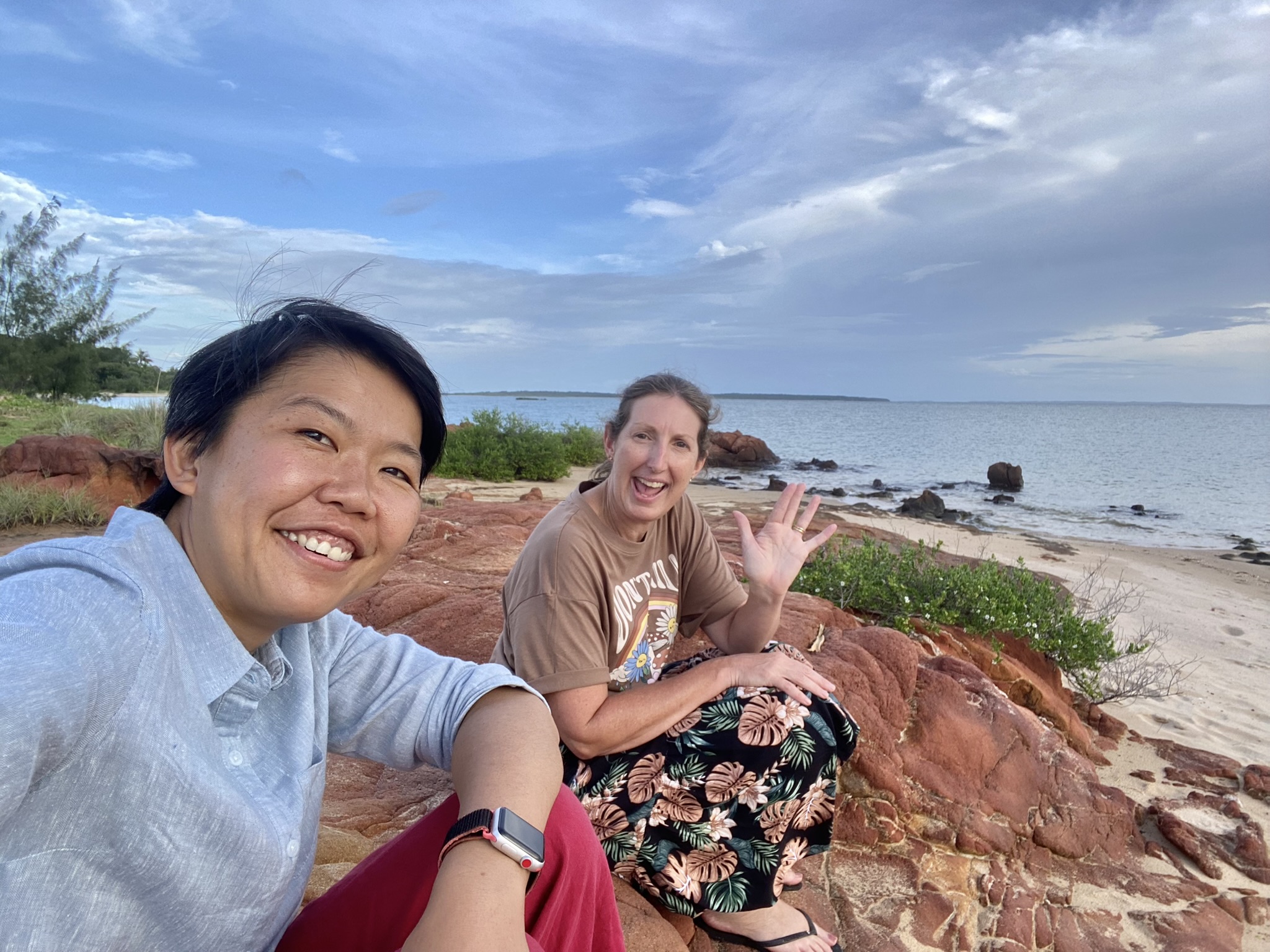
Mission & Values
There are often stereotypical views of identity, culture and persona of both Australia and Japan – popular tourist destinations often overshadow interesting areas in both countries, particularly in rural/remote locations. This project addresses this gap by featuring stories of rural locations in Australia/Japan, as seen and told by children. It seeks to be an inclusive endeavour, with a diverse representation of people, culture and languages; giving participants of different areas a chance for their stories to be told.
The stories are uniquely student-created short films, reflecting local landscapes, and student home languages. All films are bilingual (English/Japanese), making these outputs accessible to a wide audience.
The project website will further address this gap, featuring unique images, stories of place and people, that showcases the lesser-seen side of Australia and Japan to a wide global audience.
People
The projects team comprises academics from RMIT University (Melbourne, Australia) and Kochi University (Kochi, Japan): Dr Naomi Wilks-Smith (RMIT Japanese language education expert), Dr Li Ping Thong (RMIT digital media expert), Professor Darren Lingley (Kochi intercultural communication expert), Sean Burgoine (Kochi language education expert).
All four team members are seasoned academics with many years of school/tertiary teaching in both Japan and Australia. Collectively, the team has demonstrable skills and experience, including bilingual English/Japanese abilities, strong networks with schools and education associations across both countries, as well as expertise in digital media. Team members have also collaborated together in the past and were involved in a wide range of funded projects, with evidenced experience of timely completion and delivery of outputs in projects.

Dr Naomi Wilks-Smith is a Lecturer, language education specialist, teacher and researcher in the School of Education at RMIT University in Melbourne, Australia. Her expertise spans second language teaching methodology, second language acquisition, bilingual education, oral language output, interactive storytelling and Intentional Teaching Gestures for language learning.
Naomi is an experienced educator who has had roles in a variety of educational settings within primary and secondary schools and tertiary institutions in Australia, New Zealand and Japan, including mainstream classrooms, language centres, bilingual schools, and as a specialist Japanese language and English as an additional language teacher. Naomi’s vast experience contributes to her Higher Education teaching practice which centres around second language education. She is particularly interested in innovative approaches for second language learning and is passionate about embracing learners’ languages and linguistic and culturally inclusive practices. Naomi also leads inbound and outbound global experiences, as well as online global experiences, to enhance the global competencies of pre-service teachers.
Naomi’s work involves the integrated scholarship of research and education practice and often includes industry partners in schools as well as cross-School, external and international collaborations. Naomi strives for educational impact through research translation and research value creation and has been awarded grants for her work.
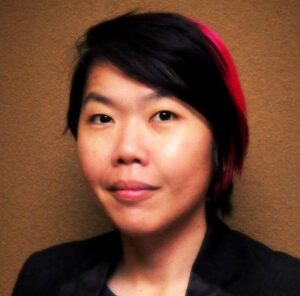
As a Digital Media designer and Senior Lecturer, Dr Li Ping Thong has vast experience practicing, teaching and researching in a myriad range of digital media specialisations, including 2D/3D animation, interactive media, app development, motion design, digital illustration, serious games, Virtual Reality (VR), Augmented Reality (AR) and Digital Storytelling.
Dr Li Ping Thong was the Program Manager of the RMIT Bachelor of Design (Digital Media) program from 2018-2020 and led a dynamic team of academic staff in the future-focused delivery of one of the most successful digital media undergraduate degrees in Australia. An experienced design practitioner in the industry, she is also an experienced educator, having over 16 years of internationalised higher education teaching experience across Malaysia, Vietnam and Australia.
A highly collaborative digital media specialist, Li Ping's research projects are often cross-disciplinary with a strong industry and community focus, having successfully worked with external partners such as Foodbank Australia, Porter Davis, Federation Square, Melbourne Girls Grammar School and Golden Plains Shire Council. Of core importance to Li Ping is research that entails in meaningful impact to society, education and the digital design discipline. She had been consistently successful in acquiring external and internal grants for research and teaching/learning.
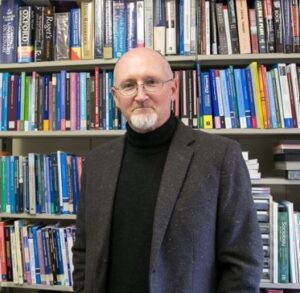
Darren Lingley is Professor of Intercultural Communication at Kochi University in Japan. His research interests include intercultural communication, English speaking assessment, and teacher education.
Darren is the 2016 winner of the TESOL International Association's Virginia French Allen Award in recognition of his professional development activities on behalf of teachers in Japan and Australia. His 2011-2013 Japan Society for the Promotion of Science grant provided funding for Japanese teachers to visit Australia to observe how languages are taught there, and to bring Australian teachers to Japan to reflect on how English is taught in Japan. This reciprocal teaching project provided valuable intercultural in-service training opportunities for participating teachers.
Darren is former Editor of JALT Journal and currently serves as President of the TEFL Praxis Association and Editor of the TEFL Praxis Journal. He has coordinated study abroad and field research programs in Australia, Canada and Hong Kong.
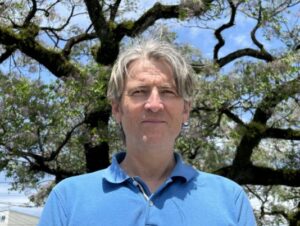
Sean Burgoine is Lecturer of Pedagogic Phonetics and Applied Linguistics at Kochi University, Japan. His research interests include pronunciation teaching, English as a Lingua Franca, and teacher education. He has published work on research themes such as prosody, bilingualism, and content-based instruction. His work in teacher training includes piloting special English-language programs at primary schools through the Kochi Board of Education and conducting special teacher licensing courses for primary school teachers required by the national Japan Ministry of Education, Culture, Sports, Science and Technology.
Sean has participated in local research and exchange projects between Australia and Japan since 2012, and has contributed to several grant projects involving both teacher and student exchange. He has worked in local Kochi schools at all levels for more than 20 years. Sean has held leadership roles in the TEFL Praxis Association and the East Shikoku chapter of the Japan Association of Language Teachers (JALT) representing a strong volunteer contribution to language education.
Acknowledgement
Special thanks to Garrthalala Homelands School teachers Lombinga Mununggurr and Taylor McCormack, to the assistant teacher Ganydjira Mununggurr, and to the Principal of Laynhapuy Homelands School Haidee Dentith. Thanks also to all the students from Transition to Year 9, the wonderful storytellers and filmers. And thanks are also extended to the Garrthalala community for their support of and involvement in the project and their generosity in sharing their knowledge, stories, song and dance with us all.
Organisations & Participants





RMIT University, Australia
RMIT University is the lead university of the project. Project academics led the work with Garrthalala Homelands School in Northern Territory and collaborated on all aspects of the broad project across Australia and Japan. RMIT students created the translations from Japanese to English for the subtitles of the Japanese film.

Kochi University, Kochi, Japan
Kochi University is the Japanese project partner. Project academics led the work with Kagami Shogakko and were actively involved in collaborations between Australia and Japan. Kochi University students created the translations from English to Japanese for subtitles of the Australian film.

Garrthalala Homelands School, Northern Territory, Australia
Garrthalala Homelands School is a participant in the project. Garrthalala Homelands School is located in a remote community in Northern Territory, Australia, comprising Indigenous students. Staff, students and community members collaborated in the project to create a filmed community story.

Kagami Shogakko, Kochi, Japan
Kagami Shogakko (primary school) is a participant in the project. Kagami Shogakko comprises Japanese students in a rural mountain village setting in the outskirts of Kochi in Japan. Staff, students and community members collaborated in the project to create a filmed community story.